Synology DS713+ NAS
Introduction
Sharing files over network is a somewhat awkward affair; either you set up a shared folder on someone’s computer and leave it running all the time—and hope it doesn’t crash—or you commit to the expense and trouble of setting up a dedicated file server. NAS devices are meant to occupy the gap between those two extremes, providing workstation-independent storage without the configuration headaches and electricity bill of a full-fledged server. Synology is one of the most prominent names in this space, and we’ve had ample experience with their products in the past. Today we’re going to be taking a look at one of their latest SOHO offerings, the DS713+.
Packaging & A Closer Look
As you might expect for a business class product, the packaging for the DS713+ is entirely about function. No ink is wasted on ad copy, or indeed much of anything else. Inside, the unit itself is cradled by a pair of thick foam caps that brace it against the inside of the box from all sides. While it’s still possible for this unit to be damaged in shipping, sturdy packaging like this greatly reduces the chances of that occurring.
Painted in basic black, the exterior of the DS713+ is sober and functional. The drive bay latches are on the front, along with the majority of the status lights. The USB port and green connect button are designed to be used in tandem for quickly copying the contents of a thumb drive to a predetermined folder on the NAS.
The back is where you’ll find the majority of the ports, along with the single cooling fan. Power and dual gigabit Ethernet ports share space with a pair of USB 3.0 SuperSpeed ports and a single eSATA port. The Kensington lock port is easily accessible; the same cannot be said for the reset button. With power and even a single USB Port connected, accessing that button becomes awkward.
The drive latches are locked in place with a simple hex key, and once unlocked they pop out with a simple push to provide a handle for inserting and removing the drives. The bays are connected to the motherboard by means of a simple riser card.
While the DS713+ normally comes empty, Synology has provided us with a pair of Seagate Barracuda drives to test it out with. Obviously, your results will vary somewhat depending on the drives you use with it. Aside from the obvious power brick, the unit comes with a pair of Cat 6 patch cables, a pair of hex keys, some spare drive screws, and the usual setup disk and documentation.

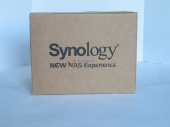

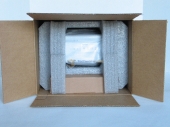
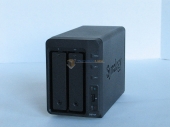
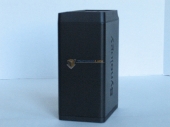
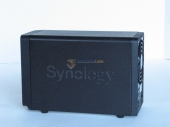
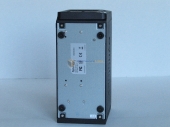
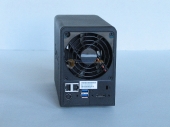
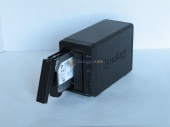
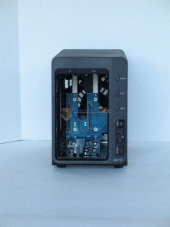
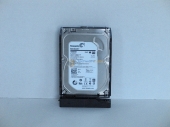
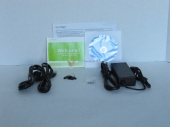

Ah, this is so important to me.. hope to have one real soon..